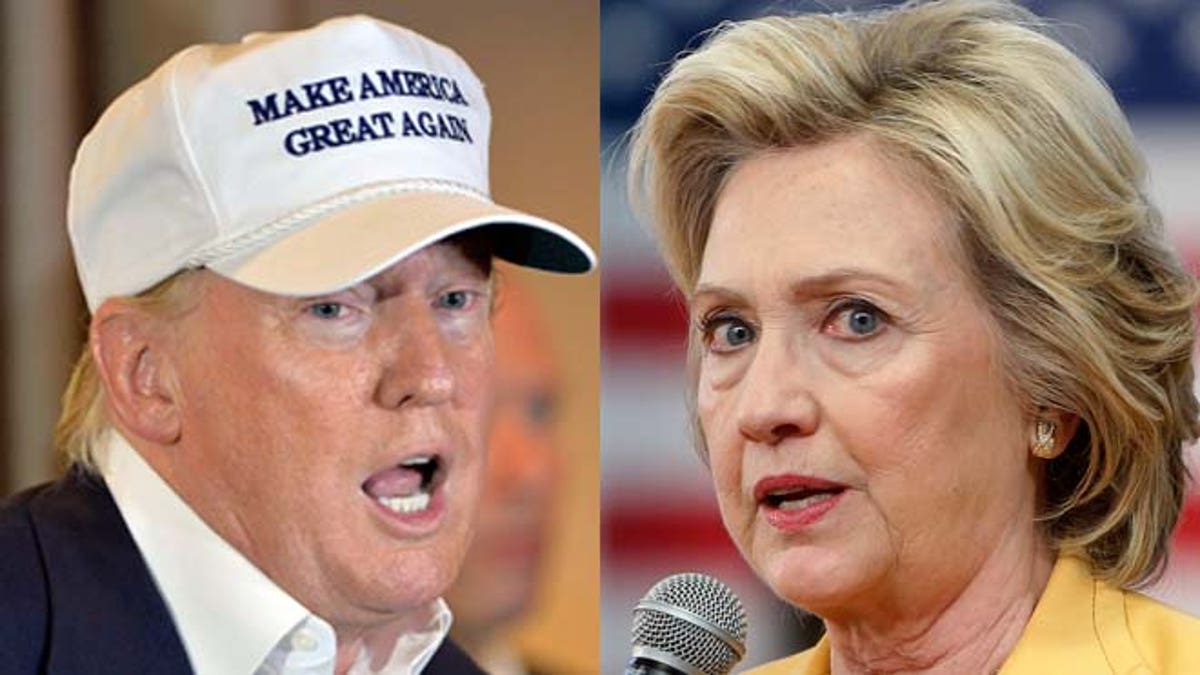
(AP)
We already knew that this political season was one of the most uncivil and bizarre in modern America history, but now we've reached an unprecedented level of division. Even one of our nation's two major political parties is splintering from within. Where will this dismay and disunity end?
Whether it is the reaction to offensive comments by a presidential candidate, shootings of unarmed black men and police, subsequent riots or frustration with our political stalemate, the anger among Americans continues to build.
Should we think that after one of the most contentious and polarizing presidential elections in our country’s modern history, either candidate will be able to bring moral leadership and reconcile our torn communities?
While politicians and pundits are quick to point fingers, neither a divisive election cycle nor even a political ideology precipitated the unstable scenes playing out across America. No, this uncivil campaign season merely exposed—and further inflamed—a nation already divided politically, racially, socio-economically and morally.
And as such, when we wake up on Nov. 9 with a new president-elect, few of us will have any more hope than the moment we headed to the polls.
If Americans remain unsatisfied and dismayed by the state of our culture today, enraged responses will lead the way.
But perhaps a little more anger is just what we need.
Martin Luther King Jr. said, “If I wish to compose or write or pray or preach well, I must be angry. Then all the blood in my veins is stirred, and my understanding is sharpened.
We call this “righteous anger,” and it serves an important place in our public discourse. It’s not an aimless anger that hurls insults—or worse—bricks. Righteous anger pushes us out of complacency and into productive action. It seeks truth and challenges injustice. Righteous anger assumes a responsibility that believes individuals have just as much of a role to play in reconciliation as elected officials.
While a growing number of Americans loathe religion, may we suggest that the author of the prescription we so desperately need is actually God? Although many of us have a meek, mild image of Jesus, he actually gives us permission—even instruction—to be righteously angry.
Americans’ perception that religion is failing us isn’t totally unmerited, nor is it a new development.
Jesus reserved some of his harshest criticism for the religious leaders of his day. In his parable of the Good Samaritan, it wasn’t the religious leaders who helped a beaten man left to die on the road. It was the neighbor who looked beyond the fact that the injured man was ideologically and racially different and took care of him anyway.
Likewise, today we need everyday citizens—not just presidential candidates—propelled by righteous anger to look out for our neighbors.
Every great movement in our nation—our independence, abolition, women’s suffrage, the civil rights movement—began with anger. These started when someone stood up to the status quo and moved others to be catalysts for change.
Righteous anger—a healthy reaction that compels us to wade into the difficult and messy conversations—demands dialogue, not one-sided arguments resulting in empty outrage, continuing a cycle of pain and intolerance. As Dr. King said, anger heightens understanding.
Regardless of a Clinton or Trump victory, America will need a lot of healing on Nov. 9.
Let’s engage with some righteous anger so we, along with our neighbors, can experience the understanding that leads to resolution and unity.








































